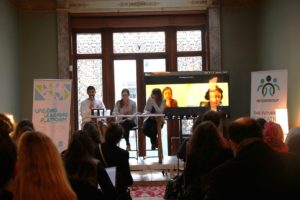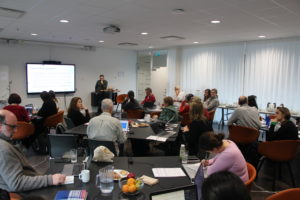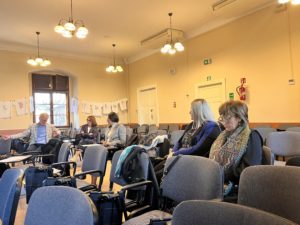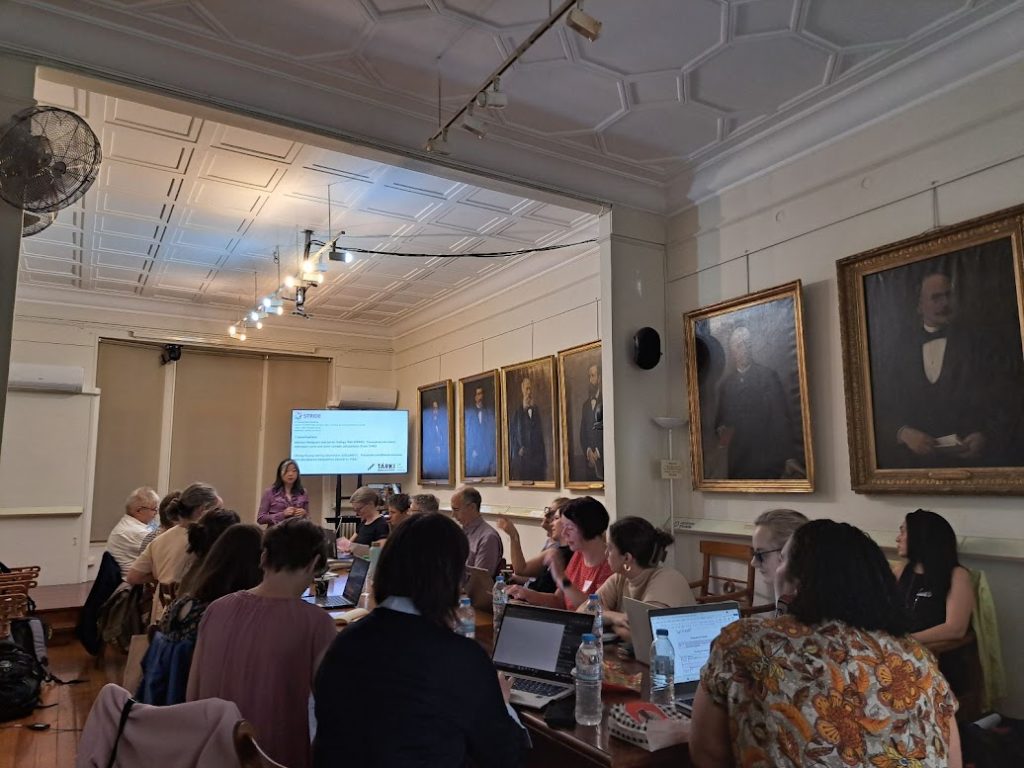STRIDE synergies – sub-study on Roma children within European education systems
STRIDE collaborate closely with diverse stakeholders and relevant initiatives to maximise synergies on methodologies and key research topics. One of our significant undertakings is a sub-study focused on the educational experiences of Roma children across various European education systems, which commenced last year. This initiative brings together STRIDE researchers from Norway, Hungary, Greece, and Poland, alongside relevant EU-level organisations, such as the European Roma Grassroots Organisations (ERGO) Network and the European Wergeland Centre, and aims to analyse existing data and policies affecting Roma children in education.
A key component of this study involves the development of a comprehensive database tracking the educational journeys of Roma children within European systems, a thorough examination of the Fundamental Rights Agency (FRA) Roma Survey, and a detailed analysis of relevant educational policies.
Several critical issues affect Roma education. Evidence shows that the negative impacts on Roma students often build up throughout their educational journey, leading to significantly lower participation in higher education (Hinton-Smith et al., 2021). Many parents have reported a lack of systemic support for inclusive education designed to meet their children’s needs (Štech et al., 2023). The gap in early childhood education enrolment between Roma and the wider population remains substantial (FRA Roma Survey 2021). Furthermore, prevailing European education policies frequently emphasise linguistic uniformity, which undermines support for students from diverse cultural backgrounds.
To effectively address the unique needs of Roma children, it is essential to clearly articulate their status and experiences within education policies (Wiksten, 2024). Improving Roma education requires a targeted approach that acknowledges and addresses the specific characteristics and needs of this community.
By shedding light on these challenges and working collaboratively with dedicated partners, we hope to contribute to meaningful progress in the education of Roma children across Europe, forging pathways to a more inclusive and equitable educational landscape.
Study update and preliminary findings
The research group met last week with Amana Ferro, Senior Policy Adviser at ERGO Network and coordinator of the network’s annual thematic research. Amana provided an insightful overview of their 2025 research, focusing on education, and stressed the importance of involving Roma communities and the civil society organisations that represent them in the design, implementation, and monitoring of education policies. ERGO research reveals that despite ongoing awareness-raising efforts, the conditions for Roma communities have not improved and, in some cases, have worsened. These insights are supported by detailed country case studies included in the report.
STRIDE findings on the educational experiences of Roma children within European education systems shared during the meeting reveal significant disparities, with key statistics highlighting low academic performance, high dropout rates, and material deprivation among Roma children. Notably, early school dropout rates vary greatly from one country to another. Factors contributing to these dropouts are multifaceted, predominantly stemming from a lack of interest in education, bullying, and material deprivation. The team suggests further research is needed to identify the main reasons behind these dropout rates and better define the “lack of interest” reason identified by many students interviewed.
Evaluating Roma-Related Policies: effectiveness and challenges
STRIDE researchers from TARKI, JU and OSLOMET analysed Roma-related policy data from the project research country case reports, identifying 35 policies from nine countries. Key research questions included the explicit targeting of Roma students in education policies and their overall effectiveness.
The majority of the policies analysed primarily focus on integration and the reduction of early school leaving among Roma students, with some specifically addressing special educational needs. However, it is notable that many of these efforts are supplementary programs rather than comprehensive systemic reforms, often concentrating solely on lower levels of education.
The effectiveness of these policies is mixed; while some demonstrate positive impacts, others fail to address the root causes of educational disparities. A significant challenge lies in the lack of systemic evaluations on the impacts of inclusion policies, particularly recent ones, highlights the need for more comprehensive data. Evaluations are often commissioned by NGOs, educational funds, and academics rather than policymakers, resulting in gaps when it comes to measuring success and follow-up.
Anti-segregation and inclusive education policies often overlook certain disadvantaged groups, such as Roma students. Despite efforts, segregation and dropout rates within Roma populations remain high. Some interventions, particularly those involving supportive and compensatory measures implemented in collaboration with Roma organisations, have yielded partial success. However, these efforts often encounter resistance from teachers and students, highlighting the need for better acceptance and integration within educational settings.
To make meaningful progress, it is essential for policymakers to actively engage with communities, examine the root causes of these disparities, and implement comprehensive reforms that ensure equitable educational opportunities for all Roma students.
Next steps
In the coming months, the STRIDE team will conduct semi-structured interviews with Roma youth who have dropped out of school in Greece, Hungary, Norway, and Poland. They will explore the feasibility of collecting qualitative data through interviews and focus groups, and include reforms related to Roma education policy on the STRIDE interactive map.
The team will continue collaborating with ERGO Network, also to identify Roma school students for interviews, emphasising the importance of effectively engaging with communities, local stakeholders, and grassroots organisations in the research process. The sub-study aims to produce several key outcomes related to Roma education, including the publication of a scientific article on the research, the development of country case studies, and an EU-wide perspective.












